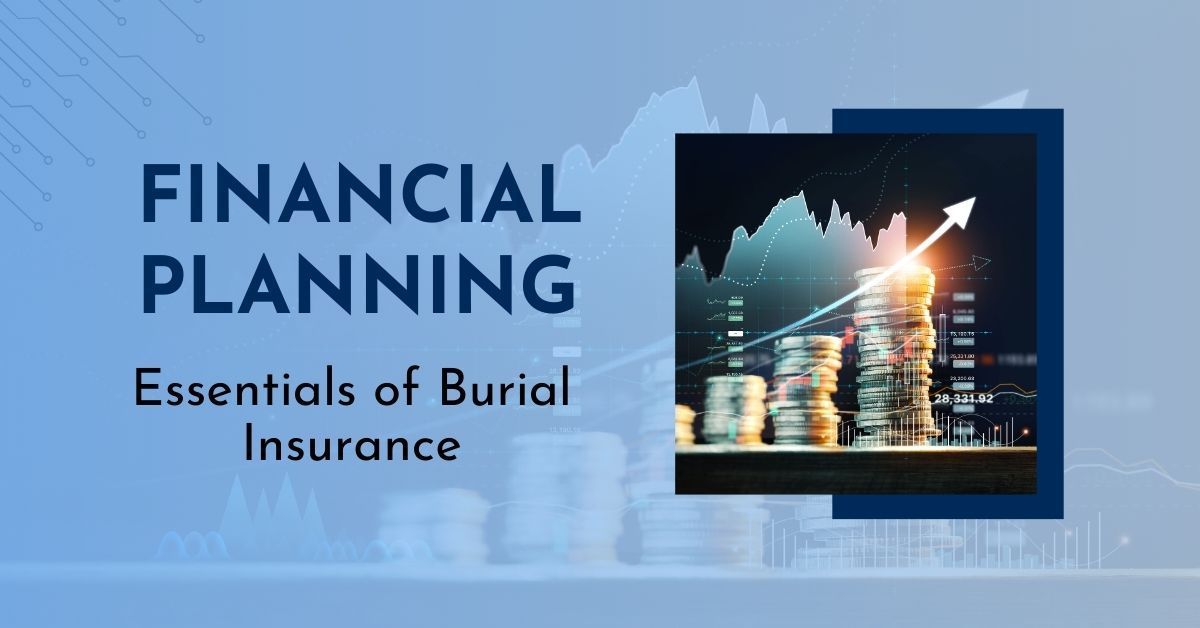Planning for Unexpected Expenses in Retirement

Retirement planning isn’t just about saving enough money. It’s about knowing how much money you need and maximizing your income. It also means mapping out your retirement years, including contingencies.
Without a retirement strategy in place, you may struggle during your golden years. Managing your retirement funds is crucial to avoid financial strain and ensure stability.
Preparing for unexpected expenses in retirement will help support your income during that time period. Unexpected costs can quickly derail your retirement if you aren’t prepared.
Medical bills, home repairs, or even helping out your family can add up and quickly strain your budget.

The key here is to create a flexible financial plan with a cushion for emergencies.
By setting aside funds, you can handle surprises without sacrificing your retirement lifestyle. From healthcare costs to home maintenance–knowing what to expect can make a huge difference.
Here’s a comprehensive guide to help you prepare for unexpected financial burdens during your retirement years.
Key Takeaways
- Plan for unexpected expenses to keep your finances stable in retirement.
- Differentiate between fixed and variable expenses for better budgeting.
- Be prepared for common unexpected expenses like medical bills and home repairs.
- Utilize Health Savings Accounts (HSAs) for medical expenses.
- Maintain an emergency fund to cover at least six months of expenses.
- Establish a support network and explore available financial assistance.
Understanding Retirement Expenses

When saving for retirement, you need to identify your living expenses, calculate your monthly income, and understand your sources of income.
Understanding retirement expenses is crucial to enjoying your golden years without financial stress. In this section, we’ll discuss how you can plan for both the expected and unexpected costs.
Fixed vs. Variable Expenses
To have a good handle on where your retirement income is going, list your fixed and variable expenses.
Fixed costs are things like mortgages, utilities, insurance, and property tax. These are your must-haves, which typically remain the same in price and frequency. If you have a mortgage, include that in your budget until it’s paid off.
On the other hand, variable costs may fall under the “wants” category. Think entertainment, dining out, travel, hobbies, and travel as part of your variable expenses. You can cut back on these expenses if your retirement budget is tight.
Common Unexpected Expenses in Retirement

Anything can happen in retirement. While retirement planning can help you prepare, unexpected expenses can pop up.
First, let’s identify what these unexpected expenses might be. For most people, retirement expenses fall into several categories. Let’s discuss each one of them:
Medical Expenses
Health care costs are a significant concern for many retirees. Even with health insurance and Medicare, health care expenses can still stack up quickly. You still have to pay out-of-pocket costs, monthly premiums, co-pays, and deductibles.
To avoid unforeseen expenses, make sure you know what Original Medicare and Medicare Advantage plans cover and what they do not. Consider the cost of prescription drugs, inpatient hospital stays, doctor visits, and other expenses.
If you're eligible, consider maintaining a Health Savings Account (HSA). HSAs allow you to save pre-tax dollars for medical expenses. Withdrawals from your HSA for qualified medical expenses are tax-free. This includes Medicare premiums, dental care, and hearing aids.
Since unexpected health issues can come up, another option is a reserve fund. Aim to have enough cash in your reserve fund to cover at least six months to a year of household expenses. This fund should be easily accessible for unforeseen medical bills.
Home Repairs and Maintenance
Nearly 80% of people aged 65 and over are homeowners. However, some retirees do not take into account a monthly mortgage when considering their housing costs.
Owning a home also means you’ll face maintenance and repair costs. Unexpected home repairs can take a big piece of your budget and cause serious stress.
Roof replacement, HVAC upgrades, and plumbing fixes are just some noteworthy issues that are expensive. You may need additional money to make the necessary repairs to your home.
Here are some ways to prepare for such unplanned expenses:
- Calculate a yearly home maintenance budget based on your home’s age and condition.
- Pay only 1% of your home value for home improvements and maintenance.
- Setting aside a “replacement reserve” for significant home expenses.
- Conduct routine maintenance, such as cleaning gutters and servicing heating systems.
Family Support
When planning for retirement, many people focus on their own needs and costs. But sometimes family support can sneak up as an unexpected expense.
Life doesn’t always go as planned, and that includes the lives of your family members. They might face situations that lead them to ask for financial support such as job loss, college tuition, or health emergencies.
Income Taxes
Many people assume their tax burden will automatically be lower in retirement. But that’s not always the case. This common misconception might surprise you when tax season rolls around.
Even if you’re not earning a paycheck, you’re still bringing in money during retirement. Any money you put into pre-tax retirement accounts, plus any earnings, will be taxed when you withdraw it. Withdrawals from traditional IRAs and 401(k) plans are taxed as ordinary income.
Likewise, up to 85% of your Social Security benefits might be taxable, depending on your combined income from other sources. This often comes as a surprise since many assume Social Security benefits are tax-free.
To avoid unexpected financial strain, develop a tax that is retirement-focused. It's a good idea to consult with a tax advisor to create a strategy that minimizes your tax liability and aligns with your retirement goals.
Risk Management and Insurance Strategies
Managing risks in retirement will keep unexpected expenses from disrupting your financial stability. Here are some key strategies to help you stay secure.
Build an Emergency Fund
Emergency funds serve as a financial buffer for unexpected costs. Think of it as a safety net, ready to catch you when emergencies arise. You hope you'll never have to use it—but it gives you peace of mind having it.
You might be wondering: How much should you save in your emergency fund? The rule of thumb is to save at least three to six months' worth of living expenses.
If you spend about $2,000 a month, aim to save between $6,000 and $12,000. This money should be kept in a liquid and easily accessible account, such as a high-yield savings account. Having an emergency fund in place prepares you for life's uncertainties.
Invest in Long-Term Care Insurance
According to the U.S. Department of Health and Human Services, around 70% of people who are 65 and older will need long-term care for at least 3 years. This is where long-term care insurance comes in.
Long-term care insurance helps cover the costs of services like nursing homes, assisted living, or in-home care. Investing in this type of insurance can help protect your assets and ensure you receive the care you need.
For instance, the average cost of a private room in a nursing home can be over $100,000 per year. Long-term care insurance can significantly offset these costs and preserve your retirement savings.
Utilize Health Savings Accounts (HSAs)
HSAs are tax-advantaged accounts that you can use to pay for qualified medical expenses. To use an HSA, you must be enrolled in a high-deductible health plan. The funds can cover a variety of expenses. This includes prescriptions, co-pays, and certain medical procedures.
Let’s say you have $3,000 in medical expenses in a year. Using your HSA can help you avoid dipping into your retirement savings.
Support Networks and Financial Assistance

Having a solid support network and knowing about financial assistance can really help manage retirement expenses. Here are some key areas to consider:
Family Contributions and Support
Your family can be a big help in your retirement. Adult children often step in to provide financial support or caregiving.
If healthcare costs are high, a married couple might get help from their kids. This will help reduce their out-of-pocket expenses. Family can also assist with daily errands, saving you money and offering emotional support.
The key here is to discuss with your family and create a plan about how or if they can contribute.
Government and Community Aid Programs
There are many government programs designed to support retirees. For example, Part C or Medicare Advantage Plans offer more comprehensive healthcare coverage. HMOs and PPOs can help with rising healthcare costs.
Programs like Social Security, survivor benefits, and pension income can also ease your financial burden. Additionally, community organizations often have services for seniors. From meal programs to transportation, these programs can save you money and allow you to socialize with fellow retirees.
Frequently Asked Questions
What are the first steps to take when planning for retirement?
First things first, take a good look at your finances. Make a budget that includes your expected income and expenses. To get a clear picture of your financial situation, it might be a good idea to chat with a financial advisor. Someone like Jonathan from Leonard Financial Solutions can help you understand your retirement goals and develop a solid retirement plan.
How can retirees prepare for unexpected healthcare costs?
Healthcare can be a real headache in retirement. One smart move is to contribute to Health Savings Accounts (HSA) if you're eligible. You may also consider getting supplemental insurance like Medigap plans to pay for those extra costs that Medicare covers.
What are some common unforeseen expenses that retirees face?
Life loves to throw curveballs, especially in retirement years. You might face unexpected costs like home repairs and health emergencies. That's why you need to have a contingency fund for these kinds of surprises.
How to estimate average monthly retirement costs?
To estimate your monthly expenses, list out all the regular costs like housing, food, transportation, and healthcare. Don’t forget occasional expenses like travel or hobbies. For a more detailed estimate, review your past spending and use a retirement expense calculator.
What methods can help manage the biggest expenses in retirement?
Handling big expenses is all about prioritizing and finding smart ways to cut costs. For example, downsizing your home can save you a lot on housing costs. You could also look into refinancing any loans to lower your monthly payments. Keeping a close eye on your budget and revisiting it regularly is key.
Why is Social Security considered a beneficial source of retirement income?
Social Security is great because it offers a steady income that adjusts with inflation. If you delay claiming it until you're 70, you'll get even bigger monthly benefits. This is what you need in retirement—an income boost and long-term security.
Kickstart Your Retirement Planning Journey
Retirement should be a time to enjoy life, not worry about unforeseen costs. Don't let unexpected situations catch you off guard. Protect your financial future with the help of Leonard Financial Solutions.
Our dedicated team is here to help you navigate the complexities of retirement planning. We’ll discuss these potential issues and prepare you for those unexpected financial burdens.
With personalized strategies, you can have the financial stability and peace of mind you deserve. Schedule an appointment with us today. Let’s get started on your path to a worry-free retirement!
Get a Free Consultation
At Leonard Financial Solutions, we're committed to making your financial planning straightforward and stress-free.
Contact us today to see how we can help you save time and money while securing your future.










